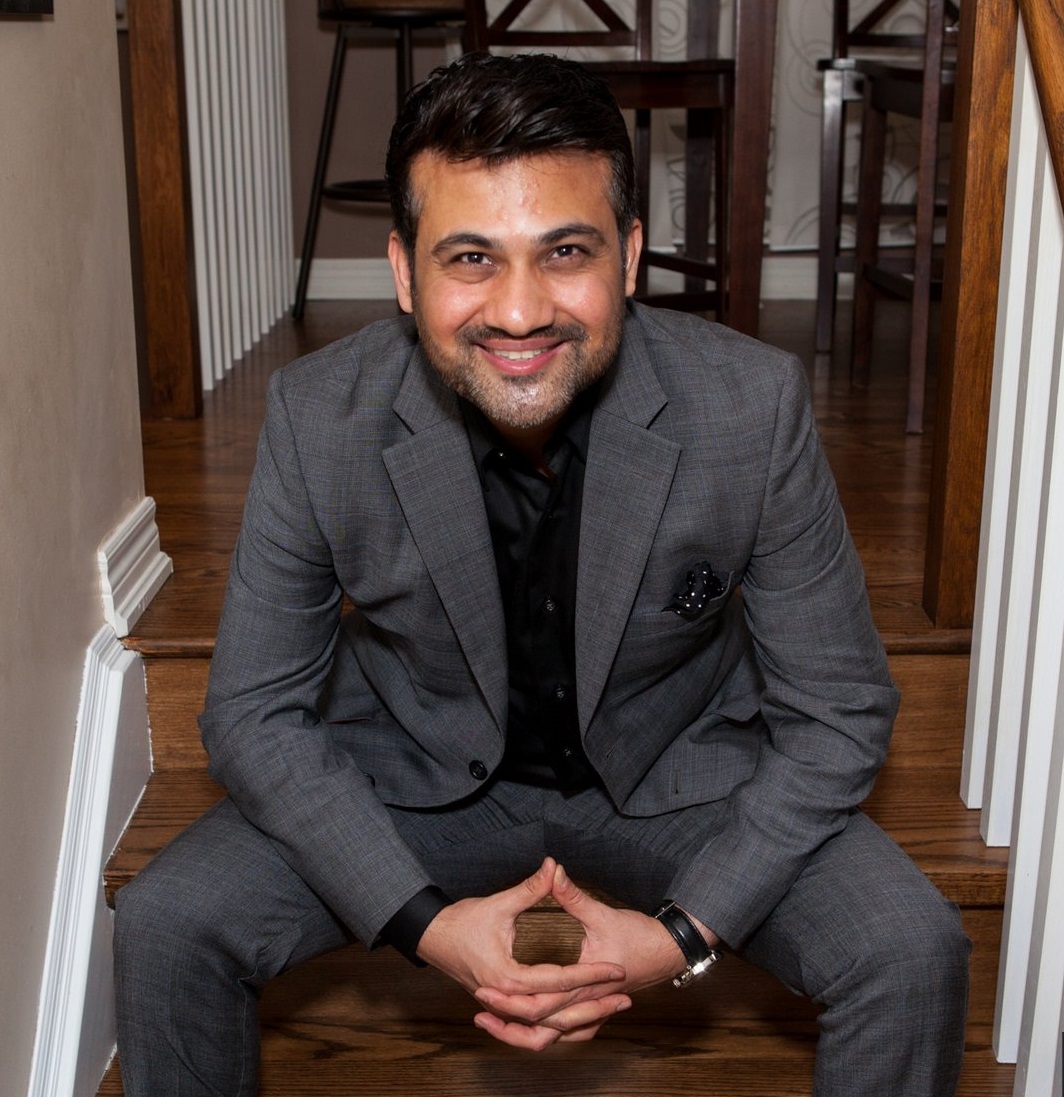What is happiness? There is no easy answer to that question. Philosophers have argued for centuries as to what the crux of happiness is, exploring the alchemy of human happiness in their own distinct ways. Is it something that exists in the psychological dimension or does it live in the spiritual realm; or is it a social phenomenon?
If the inquiry is linguistic, the meaning of happiness would be “a pleasant emotional state.” If it were to take a socio-economic connotation, happiness would mean “a state of general wellbeing.” Therefore, the answer to the question will depend on what approach you take — biological, psychological, religious, economic, or philosophical.
However, the way I looked at it in my book “The First Dancer,” one condition is common to all definitions of happiness and that is the existence of the cause of happiness. We are happy because of something; a condition that exists on the outside that elicits the reaction of happiness on the inside. It is an effect that results from a cause and not a cause in itself. As Epictetus said, “Show me one who is sick and yet happy, in peril and yet happy, dying and yet happy, in exile and happy, in disgrace and happy.”
Therefore, since happiness comes about as a reaction to a pleasant event, it is bound to be temporary. You wouldn’t say, “I’m so happy today because it was my birthday seven weeks ago.” For as long as the effect of the event lasts, the feeling lasts. Even in case of an enduring pleasant condition, such as being financially successful, the happiness ebbs away with time. It is like the law of diminishing returns. Although you might feel a sense of gratitude for your economic prosperity every day, your happiness will last only as long as you remain economically prosperous.
Don’t get me wrong. I’m not against happiness. In fact, many things I do in an average day make me happy. I consider myself a happy person. However, it is the ‘pursuit’ of happiness that seems like a delusional concept to me. Events induce emotions; good events induce positive ones, and bad events induce negative ones. It’s that simple — and that complicated.
These events are a result of actions; natural as well as human. I’m sure you would agree that other than your own actions, you don’t have complete control over the other kinds of actions — that of nature and other humans. Your happiness depends to a large extent on your environment, and when you say you are in pursuit of happiness (and nothing else), what you essentially mean is that you are expecting your environment to act in ways that would elicit an emotion of happiness in your heart. It is exactly as absurd as it sounds.
Ironically, with time you forget that your happiness also depends to some extent on your own actions. You get emotionally vested in your expectations of your environment and its control of your own emotions. If your friends and family act in ways consistent with your expectations, that makes you happy; if they don’t, you feel dejected. And even if their actions and reactions make you happy, that feeling dissipates as soon as you are endued with another emotion caused by another event or action not completely in your control. Pursuit of happiness is like chasing a moving target — a target stuck to the belly of a frolicsome kangaroo.
Why would you like to relinquish the control of your emotions to others? If you think that’s just the way things are, you need to think again. It is not that pursuit of happiness is the greatest personal virtue; in fact, it is far from being a virtue at all. The greatest virtue is to lead a meaningful life; to have a purposeful existence. If it so happens that you encounter happiness along the way, you are lucky.
So it is not the pursuit of a selfish temporary emotion dependent on uncontrollable factors that is the greatest virtue of them all. Happiness is overrated. It is like sugar, or caffeine. You like eating fancy confectionaries or drinking coffee because you feel the urge to consume something your mind has learned to associate with satisfaction. As soon as the effect of the substance subsides, your urge becomes stronger and you start looking for the next source of the substance you are addicted to. The only party that gains from the seesaw of your appetite is the folks who run the café.
Likewise, we get attracted to flashy gadgets and expensive watches because our minds have learned that buying them yields happiness. Again, by doing that we have relinquished the control of a precious feeling to those who manufacture, price and distribute products. What choice do we have, you must be thinking.
The choice is to create a meaningful life and do the things that fulfil our purpose. Doing those things may or may not lead to happiness, but it is in doing them that we find contentment. Pursuit of contentment therefore should be our goal.
BEING CONTENT
Contentment is not a result of an external event. You are not content because you are rich; you are content despite being poor. Diogenes who Plato called “a Socrates gone mad,” once said, “People have the most, when they are most content with the least.”
Since contentment does not stem from the environment and is not dependent on it to persist, it endures regardless of the social, economic, emotional or physical state of a person. When Epictetus said, “Show me one who is sick and yet happy, in peril and yet happy, dying and yet happy, in exile and happy, in disgrace and happy,” he was referring to a content soul whose measure of virtue is not material wellbeing, but a spiritual condition of inner peace and solace.
Pursuit of contentment is a virtue because contentment disregards occurrence of an event or a human action as conditions for its origination. Pursuit of contentment is not the pursuit of an elusive tomorrow; it is the celebration of today. In that, it is the pursuit to end all pursuits. Contentment unshackles us from the disquiet of tomorrow and helps us let go of our anxieties and our emotional baggage. It teaches us gratitude, forbearance and forgiveness — qualities necessary to lead a meaningful life.
It makes you rise above the world and transcend the feeling of misery that focusing on your and others’ inadequacies creates. Your emotional and spiritual state becomes insulated from the whims of the world around you, and you are free to find the true meaning of life, unhindered by other’s interpretation of meaningfulness. Contentment gives you the assurance that you are at ease with yourself right at this moment, just the way you are, and that there is nothing in the world that you need to pursue for your own self.
CONTENTMENT IS NOT COMPLACENCE
A content person is not snug as a bug in a rug. When it comes to human endeavour and attaining meaningfulness in life, he feels a sense of responsibility. This sense of responsibility leads him to live within his means, donate excess belongings, balance work and relationships, and focus on achieving personal excellence. Contentment is a prerequisite for achievement of Maslow’s self-actualization. And this is how contentment is a virtue.
Owing to his strong sense of responsibility, the ambition of a content person is not to accumulate wealth for the sake of it, but to use it to make a difference in people’s lives, and to use his potential to enhance the potential of others; to solve problems. A content person puts his heart and mind to achieving these goals, but he is not disappointed at the results. He persists in the wake of failures and rejections, and carries on his mission because that’s what gives meaning to his life, not the results of his efforts. He is satisfied with himself but not with the status quo. He continues to strive whether or not he finds himself in an ideal state of affairs to make a difference. He blooms where he is planted. He is anything but complacent.
That is the defining characteristic of the first dancer. To achieve real success in life, his pursuit of material wealth has a meaning beyond physical wellbeing. He does not rebuff the idea of acquiring wealth but his endeavour for wealth is not his ultimate goal. People whose pursuit of material wealth is founded in contentment rather than in gluttony strive for greatness and not just success. These people leave their legacy behind, not in the form of their possessions but their bestowals to the world; their literature, their inventions, their works of art, their acts of compassion, their labour and their charity.
To become the first dancer, you have to learn to be content with today, yet pursue a better tomorrow; you have to be content with yourself and yet strive to become better. This is achieved through constant reflection and meditation. You have to learn to be kind to yourself before you could be kind to others. You have to forgive yourself for your inadequacies at present to be at peace with yourself, only to find the courage to address the same inadequacies. It is like being comfortable with being uncomfortable.
The first dancer has the courage to question himself and challenge his thoughts and actions without being anxious or insecure about it. His progression towards betterment is in pursuit of excellence and not success; it is to make him the best version of himself and not merely acceptable to the world. This gives rise to an attitude I call ‘arrogant humility.’
The first dancer’s arrogant humility is the manifestation of his internal state of equilibrium between his past, present and future. He has no remorse, mortification or guilt for this past. He is confident of and grateful to all that he has at present. And he is hopeful of the future, beyond his selfish desires for the self.
With that state of equilibrium, the first dancer comes across as a pleasant person, confident and self-assured, yet accepting and humble. This attitude is evident in every nuance of his behaviour towards people; in his voice, his body language, his words and his inaction. This is the essence of charismatic leadership that is not inborn but a result of conscientious reflection. The first dancer is Diogenes’ ideal human who has the most when he is most content with the least, yet he considers pursuit of excellence his responsibility.
© Majid Kazmi 2017
Majid Kazmi is an entrepreneur, community leader and board member based in Toronto. He is a Partner & Co-founder at uGen Group (www.ugen.ca), and the Co-Founder & CEO of Valu Ventures Inc. (www.valuventures.ca). He is a former Board Member at Toronto Workforce Innovation Group and H2O4ALL. Kazmi tweets as @MajidKazmi1. Click here to see his personal website.


